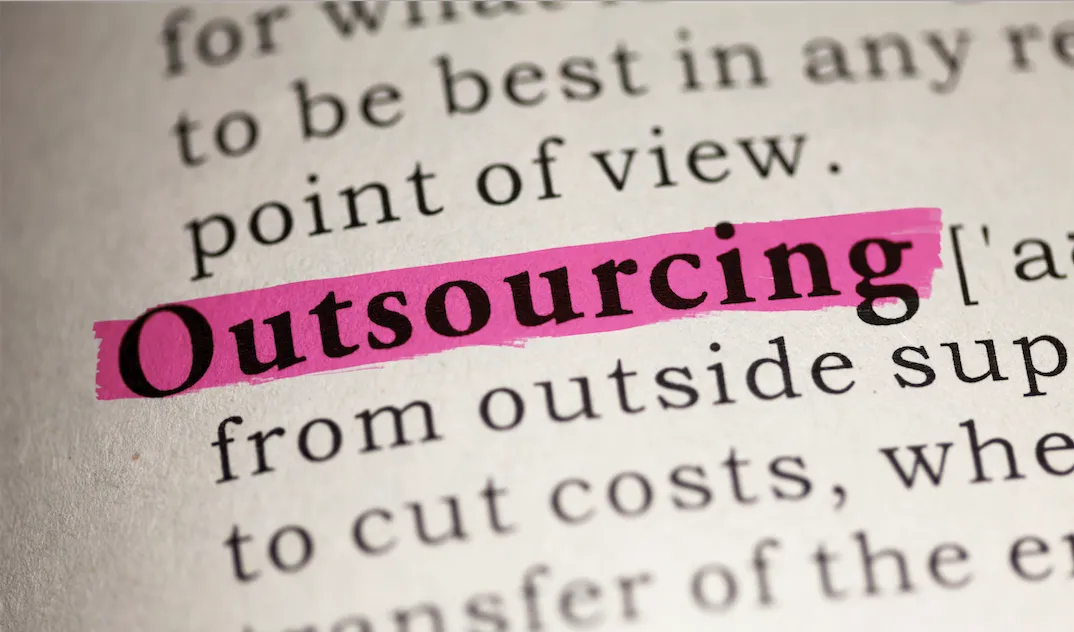
The Hidden Economic Cost of Outsourcing
Economics gets a bad rap — it’s often referred to as “the dismal science.” But let’s face it; when it comes to critical business decisions, it always comes down to simple economics.
For companies considering how to scale mission-critical business operations, like customer support, the economics often point to outsourcing. Outsourcing support can mean a low financial entry barrier, flexible coverage options, and an opportunity to adopt industry best practices. Combined, these benefits can make the decision seem like the best financial option.
What are less obvious are the hidden costs that are incurred when you hire a traditional outsourcer. Selecting such a vendor can undermine your cost reduction efforts by underserving both you and your customers. So while the choice to engage a service provider is clear, you’ll want to make sure you select the right provider, avoiding the hidden trap doors that some outsourcing providers may spring on you.
Here are some of the questions you’ll want to ask when considering who to turn to when scaling your mission-critical services.
Am I really saving on fixed costs, or is my service provider just spreading that expense across multiple clients?
Many companies perceive an economic benefit to passing operations on to an outsourcer who can spread the cost of infrastructure across many clients. After all, that alleviates the need for in-house infrastructure such as facilities, furniture and fixtures, IT, and telecommunications equipment. Sounds great — on the surface. But most outsourcers are still passing that cost along to their customers! They have large monthly fixed cost to cover, and their bills will reflect that, with their fixed costs becoming your fixed costs for the duration of your contract. You don’t get to depreciate the expense. Look for an outsourcing provider who is committed to sparing you the expense of supporting a dated service model and cost structure.
Does this provider offer the tailored services that I need, or will I have to pay for extemporaneous services that don’t help me, on a schedule that’s not ideal for my company?
Some outsourcing firms — picture the older, more monolithic companies — have a static methodology when it comes to serving clients. They’ll offer set-in-stone services at prices and schedules that have proven to work for them. Great for them, not so great for you. Why pay for services that aren’t tailored to your exact needs?
Can this provider scale up and down at a moment’s notice, to coincide with the ever-shifting needs of my business?
It’s often difficult to match the scale provided by an industry specialist who works with many clients. Traditional outsourcers have the resources on hand to grow with your business, when you need it. But that doesn’t mean that you’re able to scale in a way that is best for you. Traditional outsourcers think scale means expanding your existing processes. But really, scaling is not about “doing more of the same” — rather, you have to look to innovate your existing process to meet new customer demand. Scale means looking at those new customer cases as an indicator of long-term trends and rapidly tailor your existing processes to respond to those trends. The right outsourcer will not only have more and varied resources on hand, but also the business intelligence necessary to regularly re-evaluate your business climate and adjust accordingly.
How can I be sure this provider will be able to react to changing customer needs as my business evolves?
Just as scalability requires flexibility in your support processes, so do changing business conditions. Traditional outsourcers offer you a large technology and resource pool to supposedly react to changing market conditions. But do they make it easier for you to adopt these solutions? Outsourcers traditionally lock clients into standardized processes under long-term contracts that either specifically prevent or charge quite a bit for changes. You need to make sure that you have the flexibility to add or reduce resources, change resources, modify your support processes, and adopt new integrated technologies, without being penalized for wanting to adapt to the needs of your customer base.
Now, we may be biased, but it’s apparent to us that strategic outsourcing makes a lot of sense from an economic perspective — but only if you choose the right type of provider. You can avoid the hidden costs of outsourcing if you:
- Make sure the outsourcer is not bound by the same overhead that you’re trying to avoid,
- Can deploy a customized solution that meets your exact needs,
- Will be able to scale up and down, on demand, as your business changes,
- Will be comfortable modifying resources and processes over time, with no penalties, and
- Are not unnecessarily locked into long-term, multiyear contracts.
Partnering with a firm that employs a more modern and flexible economic model provides not only a path to greater savings, but offers the peace of mind to know that these savings will continue to be found as your business continues to evolve and thrive.
There’s nothing dismal about that science — it sounds like a win-win situation to us!
David Wohlwend
Sr. Director of Finance and Accounting
Steve Henry
VP of Interactive Services

